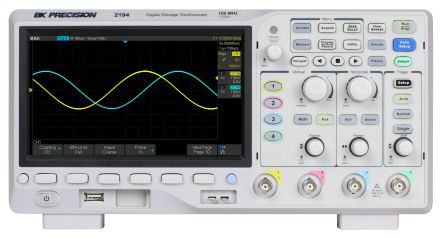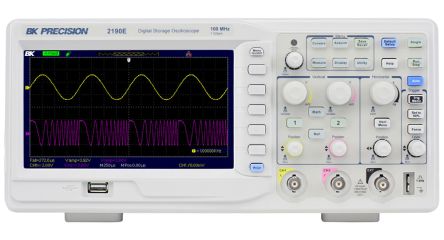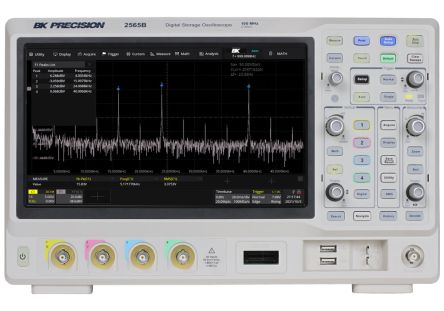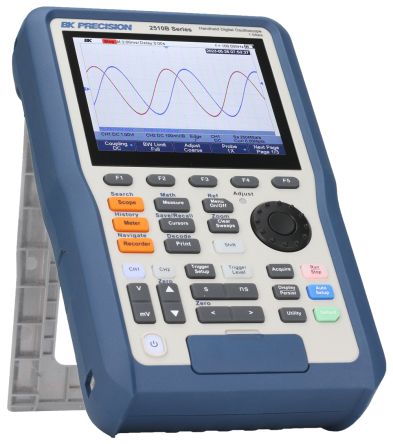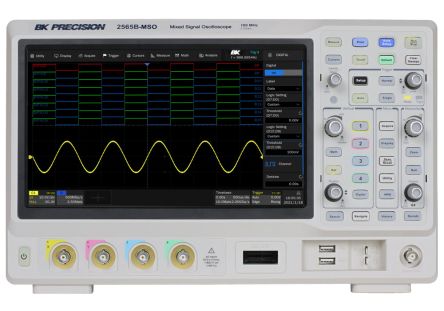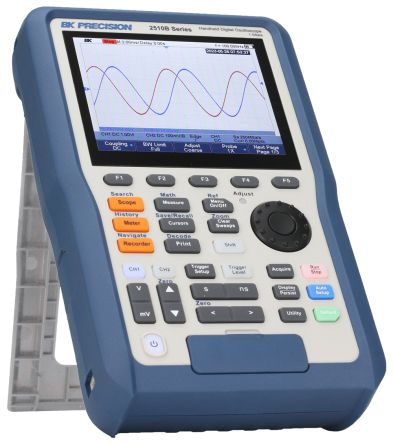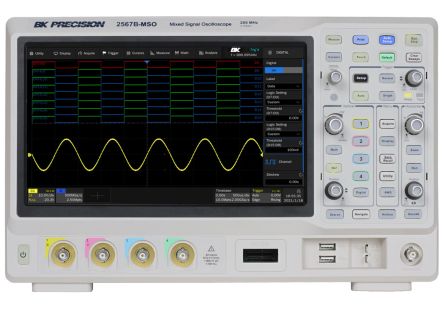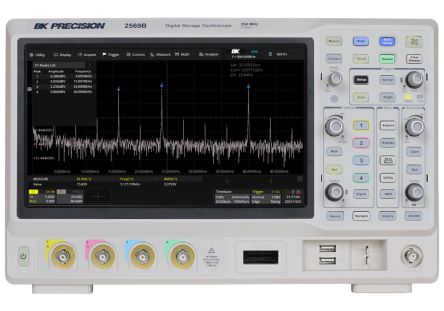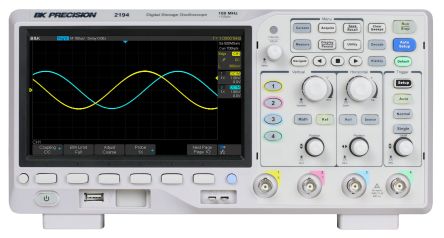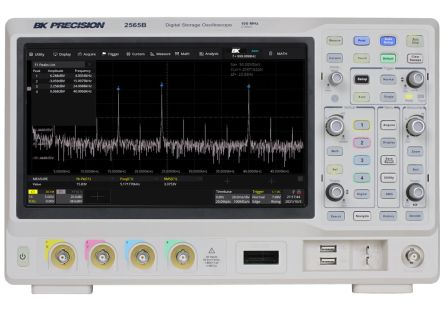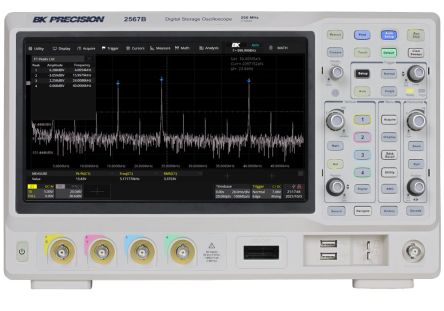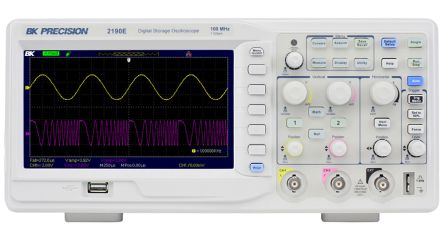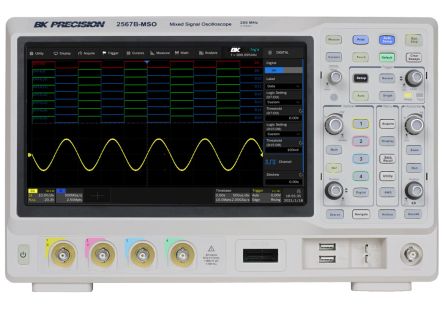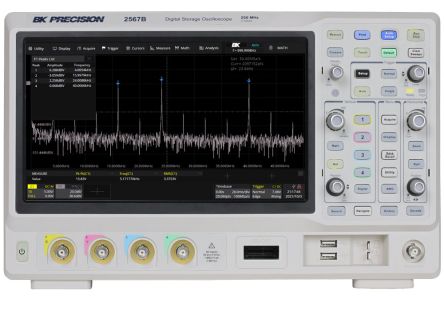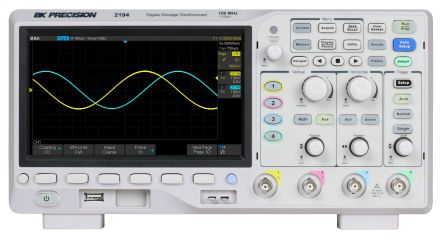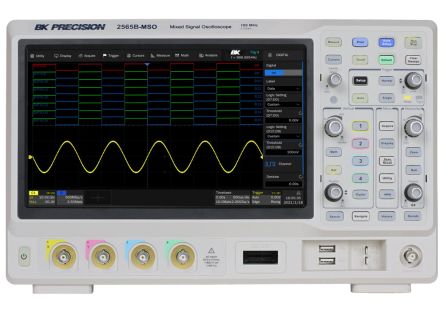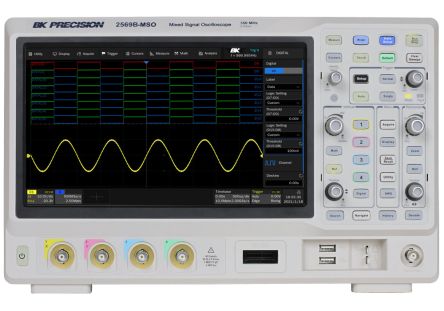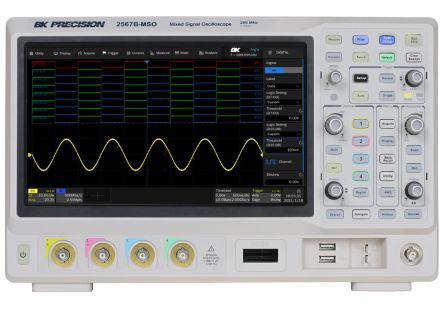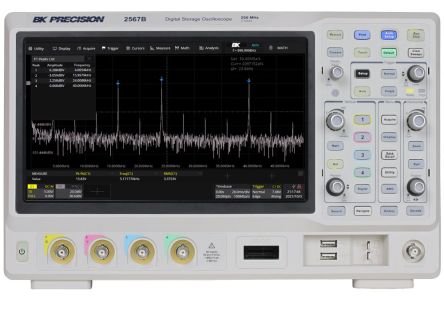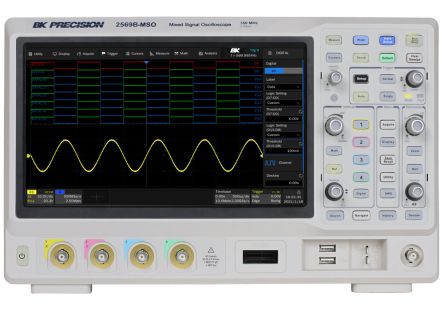- Automation & Control Gear
- Cables & Wires
- Enclosures & Server Racks
- Fuses & Circuit Breakers
- HVAC, Fans & Thermal Management
- Lighting
- Relays & Signal Conditioning
- Switches
- Batteries & Chargers
- Connectors
- Displays & Optoelectronics
- ESD Control, Cleanroom & PCB Prototyping
- Passive Components
- Power Supplies & Transformers
- Raspberry Pi, Arduino, ROCK, STEM Education & Development Tools
- Semiconductors
BK Precision Oscilloscopes
An Oscilloscope, also known as an O-scope or scope, is a complex electronic laboratory instrument commonly used to capture, process, display and analyse the waveform and bandwidth of electronic signals. The device draws a graph of the instantaneous signal voltage as a function of time. O-scopes are an analyser of a signal that comes from a signal generator. Digital oscilloscopes are often referred to as digital storage oscilloscope (DSO) or digital sampling oscilloscopes (DSO). You can learn more in our oscilloscopes guide.
Different types of Oscilloscopes
Oscilloscopes fall into various categories. The biggest distinction is whether they are digital or analogue oscilloscopes. Within the digital oscilloscopes area, there are several different types.
- Digital Oscilloscopes: Basic type of oscilloscope used. Has several capabilities from a processing of the basic waveform to advance triggering.
- Storage Oscilloscope (DSO): Has a memory to store waveforms and display them for a period of time.
- Phosphor Oscilloscopes (DPO):use a parallel processing architecture to enable it to capture and display signals.
- Digital Sampling Oscilloscopes: Used for analysing high-frequency signals for example up to 50 GHz.
- Mixed Domain Oscilloscope (MDO): Can operate in more than one domain, i.e. in time to display waveforms and in frequency to display signal spectra.
- Mixed Signal Oscilloscope (MSO):Combines an oscilloscope function with that of a logic analyser.
- Analogue Oscilloscopes: Use cathode-ray tubes (CRTs) to display basic waveforms
How does a digital oscilloscope work?
The oscilloscope is a graph-displaying instrument. It draws a graph of an electrical signal. In most applications the graph shows how signals change over time, the vertical (Y) axis represents voltage, and the horizontal (X) axis represents time. Some of the oscilloscopes featuring additional user-friendly elements such as USB ports for downloading measurement data.
In its simplest form, a digital oscilloscope features six elements:
- Analogue vertical input amplifiers
- Analogue-to-digital converter and a digital waveform memory
- Time base which features a triggering and clock drive
- Circuits for waveform display and reconstruction
- LED or LCD display
- Power supply
How to choose the best oscilloscopes?
Oscilloscopes are widely used in industry and are being increasingly used as they now offer better performance levels than ever before. There are many different types of oscilloscopes each having their own characteristics. For example, the small, lightweight handheld digital oscilloscopes are ideal for use by technicians working in service, maintenance, and installation applications. This means that different oscilloscopes types are applicable for different applications and choosing the correct type enables it to perform to its best and therefore gain the most from it.
